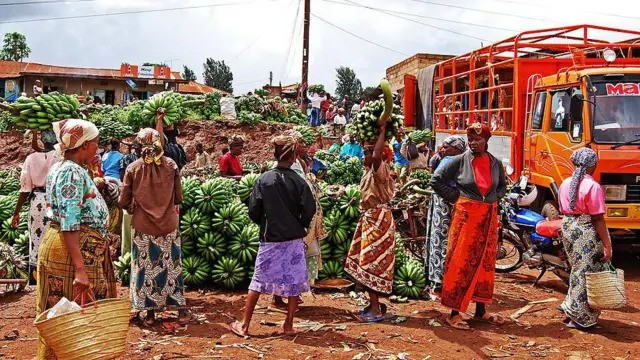Quieter Border Crossings Reflect Escalating Dispute
The usually busy Kasumulu border between Tanzania and Malawi was noticeably quiet on Thursday. This slowdown follows the latest development where Tanzania bans Malawi and South Africa imports, specifically all agricultural products, starting at midnight. The move has escalated a growing trade dispute in the region, drawing concern from traders and policy makers alike.
Why Tanzania bans Malawi and South Africa imports
Tanzania’s Agriculture Minister, Hussein Bashe, announced the ban in response to ongoing restrictions placed on Tanzanian goods by both Malawi and South Africa.
“We are taking this step to protect our business interests. In business, we must all respect each other,” Bashe said on Wednesday.
South Africa has long banned Tanzanian bananas. In March, Malawi temporarily banned imports of flour, rice, ginger, bananas, and maize to protect its local farmers.
Talks Underway but No Resolution Yet
Diplomatic negotiations are ongoing, but earlier efforts have failed to resolve the trade issues. Despite the tension, Bashe said fresh talks are in progress.
This dispute comes as African nations aim to strengthen intra-continental trade under the African Continental Free Trade Area (AfCFTA), launched four years ago to promote open markets across Africa.
The Impact on Trade and Regional Economies
Tanzania’s ban directly affects South African exports of apples and grapes and blocks Malawian agricultural imports. The ban also disrupts logistics for landlocked Malawi, which heavily relies on Tanzania’s Dar es Salaam port to export goods like tobacco, sugar, and soybeans.
With the ban in effect, Malawian exporters may have to shift to Mozambican ports like Beira and Nacala, which are more costly alternatives.
Malawi’s Justification for Import Restrictions
According to Malawi’s Trade Minister, Vitumbiko Mumba, the import ban introduced in March was a temporary measure aimed at helping local businesses thrive by shielding them from foreign competition.
“It is a strategic move to create an environment where local businesses can thrive without the immediate pressure of foreign competition,” he said.
Tensions at the Border
The Kasumulu crossing, which usually sees over 15 lorries transporting agricultural goods daily, saw only a few trucks, mostly carrying fuel, on Thursday. On the Malawian side, truck drivers were left stranded with no goods to transport.
“It’s been very difficult for them. They usually carry bananas, tomatoes, maize, and potatoes. Now they can’t move any of those,” said local businesswoman Happy Zulu.
Rotting Produce Highlights the Trade Standstill
In a social media post on Saturday, Minister Bashe shared a video of rotting bananas left stranded in a truck at the Malawi border. Similar reports have emerged of spoiled tomatoes that couldn’t make it through customs.
Bashe expressed frustration, saying Tanzania could no longer tolerate what he called unfair trade practices.
Tanzania Pushes for Fairer Trade
Despite the ban, Bashe emphasized that Tanzania is not trying to start a trade war but is acting to protect national interests.
“Tanzania will not continue to allow unequal market access to persist at the expense of its people,” he said. He also reassured the public that the ban won’t impact national food security:
“No Tanzanian will die from a lack of South African grapes or apples,” he added.
What’s Next?
Tanzania may shift its trade focus to markets in Kenya, Namibia, and South Sudan. However, Malawi could face steeper challenges as it scrambles to reroute exports and imports.
As diplomatic talks continue, the region watches closely to see whether the Southern African Development Community (SADC) can mediate a peaceful and economically sensible resolution.

